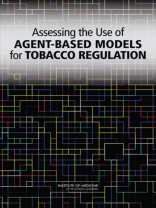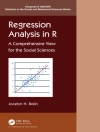Tobacco consumption continues to be the leading cause of preventable disease and death in the United States. The Food and Drug Administration (FDA) regulates the manufacture, distribution, and marketing of tobacco products – specifically cigarettes, cigarette tobacco, roll-your-own tobacco, and smokeless tobacco – to protect public health and reduce tobacco use in the United States. Given the strong social component inherent to tobacco use onset, cessation, and relapse, and given the heterogeneity of those social interactions, agent-based models have the potential to be an essential tool in assessing the effects of policies to control tobacco.Assessing the Use of Agent-Based Models for Tobacco Regulation describes the complex tobacco environment; discusses the usefulness of agent-based models to inform tobacco policy and regulation; presents an evaluation framework for policy-relevant agent-based models; examines the role and type of data needed to develop agent-based models for tobacco regulation; provides an assessment of the agent-based model developed for FDA; and offers strategies for using agent-based models to inform decision making in the future.
Board on Population Health and Public Health Practice & Committee on the Assessment of Agent-Based Models to Inform Tobacco Product Regulation
Assessing the Use of Agent-Based Models for Tobacco Regulation [PDF ebook]
Assessing the Use of Agent-Based Models for Tobacco Regulation [PDF ebook]
购买此电子书可免费获赠一本!
语言 英语 ● 格式 PDF ● 网页 290 ● ISBN 9780309317238 ● 编辑 Amy Geller & Robert Wallace ● 出版者 National Academies Press ● 发布时间 2015 ● 下载 3 时 ● 货币 EUR ● ID 7144708 ● 复制保护 Adobe DRM
需要具备DRM功能的电子书阅读器












